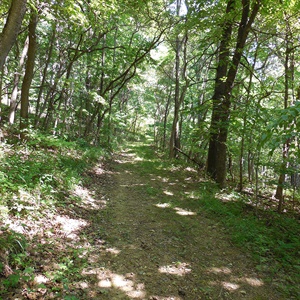The Arkansas Natural Heritage Commission maintains several hiking trails on natural areas throughout the state that are free and open to the public. However, some of the trails are very different in composition and difficulty levels.
Trails on Arkansas’s natural areas fall into two categories: Developed Trails and Natural Trails. Developed trails have paving, boardwalks, and interpretive panels. One, Lorance Creek Natural Area, also has a restroom facility. Developed trails are less strenuous than their more primitive counterpart, natural trails. The five ANHC trails that fall into the developed category are also American Disability Association (ADA) accessible. Those five are: Byrd Lake Natural Area in Jefferson County; Chalk Bluff Natural Area in Clay County; Lorance Creek Natural Area in Pulaski and Saline Counties; Louisiana Purchase Natural Area in Monroe, Lee, and Phillips County; and Mills Park Natural Area in Saline County.
Natural trails, also known as primitive trails, do not have pavement or gravel pathways. They have few to no interpretive panels, often marked only by paint blazes on trees or blue trail markers. Natural trails also tend to have a higher difficulty level due to length of the trail, the difficulty of the terrain, or both. Natural trails are maintained periodically to control overgrowth, yet can become more grown up during warmer months. None of the ANHC natural trails have restroom facilities.
All ANHC trails are currently limited to foot traffic only in order to minimize erosion and disturbance to sensitive areas. The collection and/or removal of plants (including fruits, nuts, or edible plant parts), animals, fungi, rocks, minerals, fossils, archaeological artifacts, soil, downed wood, or any other natural material alive or dead is prohibited. Collecting for scientific research requires a permit issued by ANHC.
